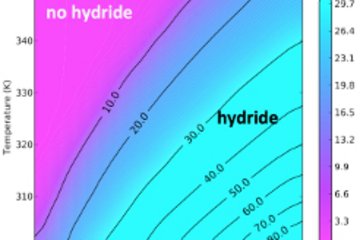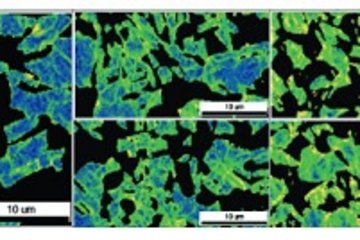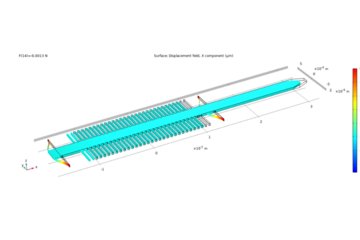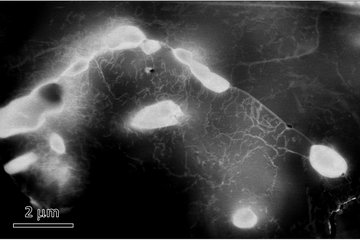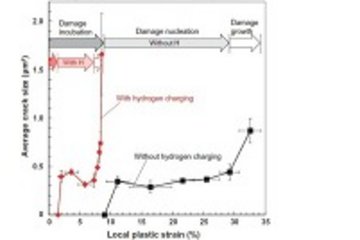All genres
901.
Teaching
Transmissionselektronenmikroskopie für Fortgeschrittene. Lecture: WS 2018/2019, Ruhr-Universität Bochum, 2018-10 - 2019-03
902.
Teaching
Mechanische Eigenschaften in kleinen Dimensionen. Lecture: Vorlesung (2SWS), SS 2018, Ruhr-Universität Bochum, Bochum, Germany, 2018
903.
Teaching
Atomare Charakterisierung von Werkstoffen. Lecture: WS 2018/2019, Heinrich-Heine Universität Düsseldorf, October 08, 2018 - February 01, 2019
904.
Teaching
Mechanische Eigenschaften in kleinen Dimensionen. Lecture: Vorlesung (3LP), SS 2015, Ruhr-Universität Bochum, Bochum, Germany, May 18, 2015 - May 22, 2015
905.
Teaching
Advanced Transmission Electron Microscopy. Lecture: Vorlesung, WS 2015/16, Ruhr-Universität Bochum, Bochum, Germany, November 02, 2015 - November 11, 2015
906.
Teaching
Transmissionselektronenmikroskopie für Fortgeschrittene. Lecture: Technisches Wahlfach Masterprogramm Maschinenbau und Sales Engineering and Product Management, Fakultät für Maschinenbau, Ruhr-Universität Bochum, WS 2015/2016
, Bochum, Germany, 2015-10 - 2016-03
907.
Teaching
Mechanische Eigenschaften in kleinen Dimensionen. Lecture: Vorlesung: Mechanische Eigenschaften in kleinen Dimensionen (2SWS), Ruhr-Universität Bochum, Germany, May 06, 2014 - May 14, 2014
908.
Teaching
Advanced Transmission Electron Microscopy. Lecture: Vorlesung (2SWS), WS 2014/2015, Ruhr-Universität Bochum, Bochum, Germany, November 17, 2014 - November 26, 2014
909.
Teaching
Advanced Transmission Electron Microscopy. Lecture: Vorlesung, WS 2013/14, Ruhr-Universität Bochum, Bochum, Germany, January 13, 2014 - January 17, 2014
910.
Teaching
Mechanische Eigenschaften in kleinen Dimensionen. Lecture: Vorlesung, SS 2013, Ruhr-Universität Bochum, Bochum, Germany, May 06, 2013 - June 24, 2013
911.
Teaching
Materialwissenschaften 1. Lecture: Vorlesung: Materialwissenschaften 1 (WS 2012/13), Universität Salzburg, Salzburg, Austria, October 01, 2012 - March 31, 2013
912.
Thesis - PhD
Effect of grain boundary atomic structure on shear coupled grain boundary motion in copper using atomistic simulation. Dissertation, Ruhr-Universität Bochum, Bochum, Germany (2025)
913.
Thesis - PhD
Design of ZrCu thin film metallic glasses with tailored mechanical properties through control of composition and nanostructure. Dissertation, RUB Bochum, Bochum, Germany (2025)
914.
Thesis - PhD
Dislocation transmission through coherent and incoherent twin boundaries in copper at the micron scale. Dissertation, Ruhr University Bochum (2024)
915.
Thesis - PhD
Influence of plastic anisotropy on the deformation behaviour of Austenitic stainless-steel during single micro-asperity wear. Dissertation, Ruhr-Uiversität-Bochum (2023)
916.
Thesis - PhD
Hydrogen effects on the mechanical behaviour of FeCr alloys investigated by in-situ nanoindentation. Dissertation, Ruhr-Universität Bochum (2023)
917.
Thesis - PhD
Critical assessment and investigation of the Ti-Al-X (X = Si, Zr, O) systems. Dissertation, Ruhr-Universität Bochum (2023)
918.
Thesis - PhD
Phase identification and micromechanical characterization of an advanced high-strength low-alloy steel. Dissertation, Ruhr-Universität Bochum (2023)
919.
Thesis - PhD
Fundamental investigation of the atomic structures of [111] tilt grain boundaries, their defects and segregation behaviour in pure and alloyed Al. Dissertation, Ruhr-Universität Bochum (2023)
920.
Thesis - PhD
On the cementite behavior during tribology and experimental methods of microscale wear. Dissertation, Ruhr-Universität Bochum (2022)




